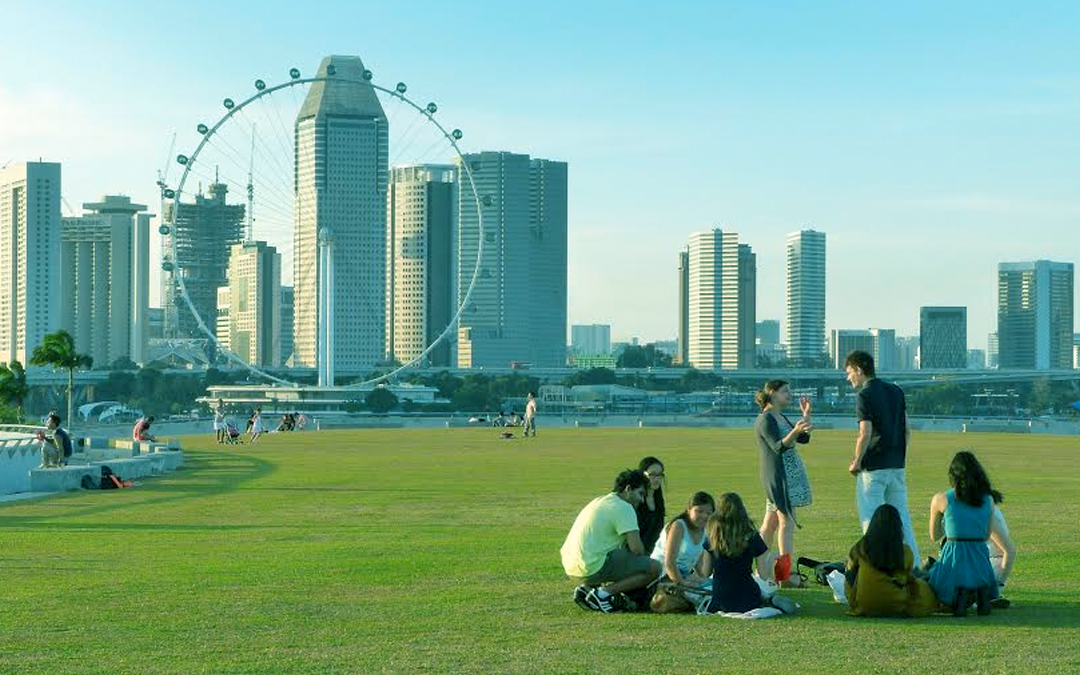In order to find out more on what the stakeholders believe that this partnership and PlaceCORE could potentially achieve and what the future holds for the two companies and the communities involved, The Columnist held a conversation with 3 key executives who have and will be much involved in the formulation and implementation of the PlaceCORE design and framework processes.
From left to right: Kuan Chee Yung, Senior Vice President at CPG Consultants, Karthik Karkal, Vice President of Urban Planning at CPG and Helena Pham, Partner at Consulus.
The Columnist: Good day to the three of you and thanks for taking your time off to be part of this conversation. First and foremost, please share with us your experiences and thoughts on the situation for property developments in Asia.
Karthik: Developments, as businesses in general, focus on the financial returns on the investment. When the focus on returns becomes the sole purpose of building developments, the challenges tend to outweigh the benefits from these investments. This is the situation we encounter in the industry around the world, whether it is Asia, Middle East or Africa. Besides, the situation in Asia is further complicated when the inherent strengths of the developers are not matched with the vision that is set forth for the developments they pursue. This is clearly evident when all the developments in a particular market start to look the same, offer the same amenities and also make similar mistakes. On the contrary, some of the successful developments have been able to go beyond just the business considerations and in the process, contribute meaningfully to the improvement of the quality of people’s lives.
Chee Yung: Although Asian developments have been influenced by the West, unlike in the West, where processes are more developed, branding is stronger, and businesses are more transparent, developments in Asia are hobbled by lack of purpose to guide and build strong development teams. They also lack the understanding of what a holistic building life cycle design is, as well as the economics of urban development to co-create and ultimately implement designs that can grow property value over the long term.
The Columnist: It seems like the property industry in Asia isn’t living up to the standards. How would PlaceCORE serve to shape the industry and make it better?
Helena: Realising these bigger problems and consequences, Consulus and CPG have decided to join hands to provide the PlaceCORE solution for the Asia property development industry by raising a bigger question to the property developers: How would their development impact the life and future of the community and how will it shape the economic agenda? By answering this question, they will be able to realise the higher role they play as developers and know how to create a unique property vision, instead of borrowing it from somewhere else.
Chee Yung: PlaceCORE is a multi-prong method that helps to customise a development business process, create a dynamic system of data gathering, act as a living method of constant reinvention and resilience through strategic design plus benchmarking, and functions as a tool for developer self-branding. This unique approach, if implemented diligently and truthfully, will truly change the foundations of Asian development.
Karthik: PlaceCORE as an approach will work at the core of the challenges to develop sustainable and resilient communities. Communities that will foster a sense of belonging, create lasting memories that people will treasure and in the process ensure economic sustainability for the investments made by the developers.
The Columnist: From what the three of you have just said, the potential of PlaceCORE in shaping the development industry is really promising.
And since PlaceCORE is at the centre of this meeting between multidisciplinary urban development and business design, what can we expect from this marriage between the two vocations?
Helena: The success of urban development is measured not only by its design concept plan but also by the capability and efficiency in implementing and executing the plan. With CPG bringing in the richness from a hundred years of experience in planning, designing, and building cities, townships and destinations all over the world and Consulus bringing in a profound track record in building capacity for Asian companies and organisations through a business design approach, the marriage of multidisciplinary urban development and business design will likely produce meaningful developments which stay authentic and identical to their roots, and built and run professionally and competently.
Karthik: Developers in Asia have not only been looking to create attractive developments that reflect their brand but also they have been constantly reinventing their brand and business plans to capture more of the real estate market. In order to implement their vision for the development, they hire master planners, architects, and landscape architects. And in order to strengthen their brands, they hire branding consultants.
But in order to create lasting and self-sustaining businesses some enlightened developers seek the services of multidisciplinary development consultants like CPG Consultants and separately the services of business design consultants like Consulus. The development world should expect a comprehensive and robust solution to their challenges from this partnership.
This partnership has a track record of working with each other for 14 years. And in all those years we have developed a good understanding of each other’s professional value-add to the developments. Together, the partnership will deliver the solution in a cost and time-efficient manner.
The Columnist: That sounds like a perfect match. With that, let us wrap up this conversation on a personal high note with this final question. What are your personal hopes for PlaceCORE?
Chee Yung: I believe that the dream of this Millennia is to find new solutions to problems that technology and blatant copying of current design solutions alone have not and cannot resolve. I hope for PlaceCORE to bring to life these 3 missing elements: the parallel evolution of positive social behaviour through inspiration yet intuitive processes; an educated consciousness to resilient development that include strong environmental and economic foundations; and the believe in a win-win through unlocking the best of design.
Karthik: I hope to see PlaceCORE create places that will help the urban dweller take pride in his or her community. I feel that that this pride will then make these places vibrant and liveable and especially one in which every citizen feels a sense of identity, belonging and purpose.
Helena: My hope is for PlaceCORE to be a means for each place and each destination to have the richness of its own culture and identity and for property developers to showcase that abundance to the world.
The Columnist: Thank you very much for your valuable insights. We hope too that all your hopes for PlaceCORE would be fulfilled and that PlaceCORE and this partnership truly shapes the world.


